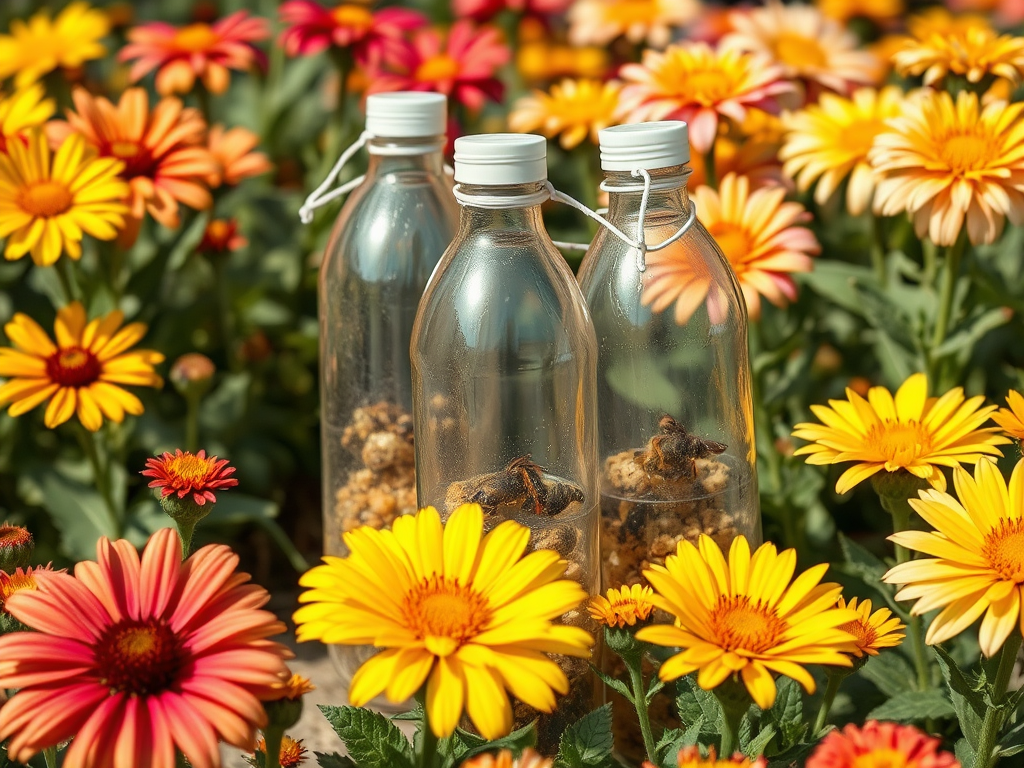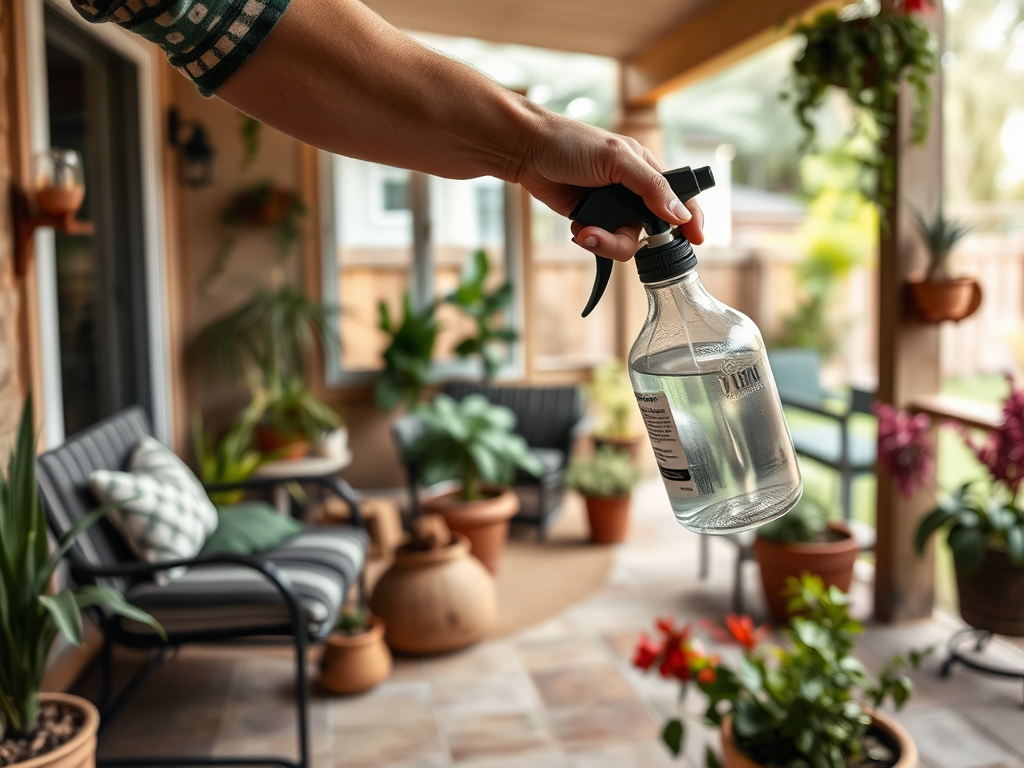As summer rolls in, the allure of sunny days and barbecues is often overshadowed by the unwelcome presence of wasps. These pesky insects can turn a pleasant outdoor gathering into a chaotic scenario. Thankfully, there are numerous effective home remedies to keep them at bay. Utilizing natural solutions not only protects you from stings but also promotes a safer environment for your family and pets. In this article, we will delve into practical methods to safeguard your space from wasps using everyday ingredients and easy-to-follow techniques. Embrace the joy of summer without the fear of being buzzed out.
Understanding Wasps and Their Behavior

Understanding wasp behavior is crucial to effectively warding them off. Wasps typically search for food and nesting sites, both of which can be found around our homes. They are naturally attracted to sugary foods and proteins, which makes outdoor meals a prime target. Additionally, as the summer progresses, wasp populations can soar, leading to an increased chance of encounters. Recognizing their patterns can help you take proactive measures. Implementing simple changes around your home can drastically reduce the likelihood of unwelcome visits.
- Food Sources: Sweet treats, meats, and even pet food can lure wasps closer.
- Shelter: Wasps look for secure nesting sites in sheltered areas, such as eaves and walls.
- Seasonal Habits: During the summer breeding season, wasps become more active and aggressive.
Essential Oil Remedies

Harnessing the power of essential oils can be a highly effective and aromatic solution to deter wasps. These natural oils are concentrated plant extracts that possess various properties, including repelling insects. Not only do they keep wasps away, but they also make your space smell wonderful. Using essential oils like peppermint, clove, and lemongrass can create an invisible barrier that they find uninviting. Additionally, they offer a safer alternative to chemical repellents. With a bit of creativity, you can harness their potency for summer enjoyment.
- Peppermint Oil: Its strong scent is disliked by wasps, making it an excellent deterrent.
- Clove Oil: Not only repels wasps, but it can also help eliminate existing nests efficiently.
- Lemongrass Oil: This citrusy aroma naturally keeps wasps at bay.
DIY Traps
Creating simple DIY traps is another method to manage wasp populations effectively. These traps can attract and capture wasps, reducing their presence without harmful chemicals. The best part? You can easily make them at home with items you likely have on hand. The idea is to use sweet bait to entice the wasps while preventing them from escaping. By strategically placing these traps around your yard, you can create a hostile environment for them. Here’s a quick overview of how to make a homemade wasp trap:
| Item | Purpose |
|---|---|
| Plastic Bottle | Serves as the trap structure. |
| Sugary Bait (Soda or Juice) | Attracts wasps into the trap. |
| Water | Prevents wasps from escaping once inside. |
Natural Deterrents
Utilizing common household items can also effectively keep wasps away. Sometimes the solutions we already have are all that we need. For instance, vinegar is not just for cleaning; it can serve as a powerful wasp repellent when mixed correctly. Similarly, cucumbers may not be a typical pest control product, but their scent is highly unappealing to wasps. Lastly, a simple mixture of dish soap and water can create a potent solution to trap wasps. Implementing these natural deterrents can invite a peaceful environment back into your outdoor areas.
- Vinegar: A strong vinegar solution acts as a reliable repellent spray.
- Cucumber Slices: Placing cucumber slices around high-traffic areas can deter wasps.
- Dish Soap: A mixture of soap and water traps wasps effectively.
Creating a Wasp-Repelling Yard
Transforming your yard into a wasp-repelling space involves more than just the occasional spray. It requires a strategic approach. Maintaining cleanliness is essential; wasps are drawn to food sources left uncleaned. Regularly sweeping your outdoor areas can go a long way. Additionally, choosing specific plants can make a difference. Certain plants are natural repellents that help create a hostile environment for wasps. Finally, don’t forget to inspect and seal any entry points around your home to prevent potential nesting.
- Maintain Cleanliness: Regularly clean up food spills and waste to eliminate attractants.
- Choose the Right Plants: Consider adding plants like mint and eucalyptus to your garden.
- Seal Entry Points: Check your home for openings that could serve as nesting spots.
Conclusion
With the right strategies and home remedies, you can effectively reduce wasp encounters this summer. These natural deterrents not only provide a safer environment for you and your family but also foster an enjoyable outdoor experience. By understanding wasp behavior and implementing the mentioned methods, you can reclaim your summer. Embrace the vibrant season without the fear of these buzzing intruders. Enjoy long nights on the patio and barbecues with friends. After all, summer is meant to be celebrated!
Frequently Asked Questions
- What attracts wasps to my home? Wasps are typically attracted by food sources, particularly sugary and protein-rich foods, as well as potential nesting sites.
- Are essential oils safe for pets? While many essential oils are safe, it’s important to research specific oils because some can be toxic to pets.
- How can I prevent wasps from nesting near my entrance? Seal gaps, remove food sources, and use natural repellents around entryways to deter nesting.
- Do home remedies work better than store-bought wasp sprays? Home remedies can be effective and environmentally friendly, but for severe infestations, store-bought solutions may offer quicker results.
- Is it safe to remove a wasp nest myself? If the nest is small and easily accessible, you might be able to remove it. However, for larger nests, it’s advisable to consult pest control professionals for safety.